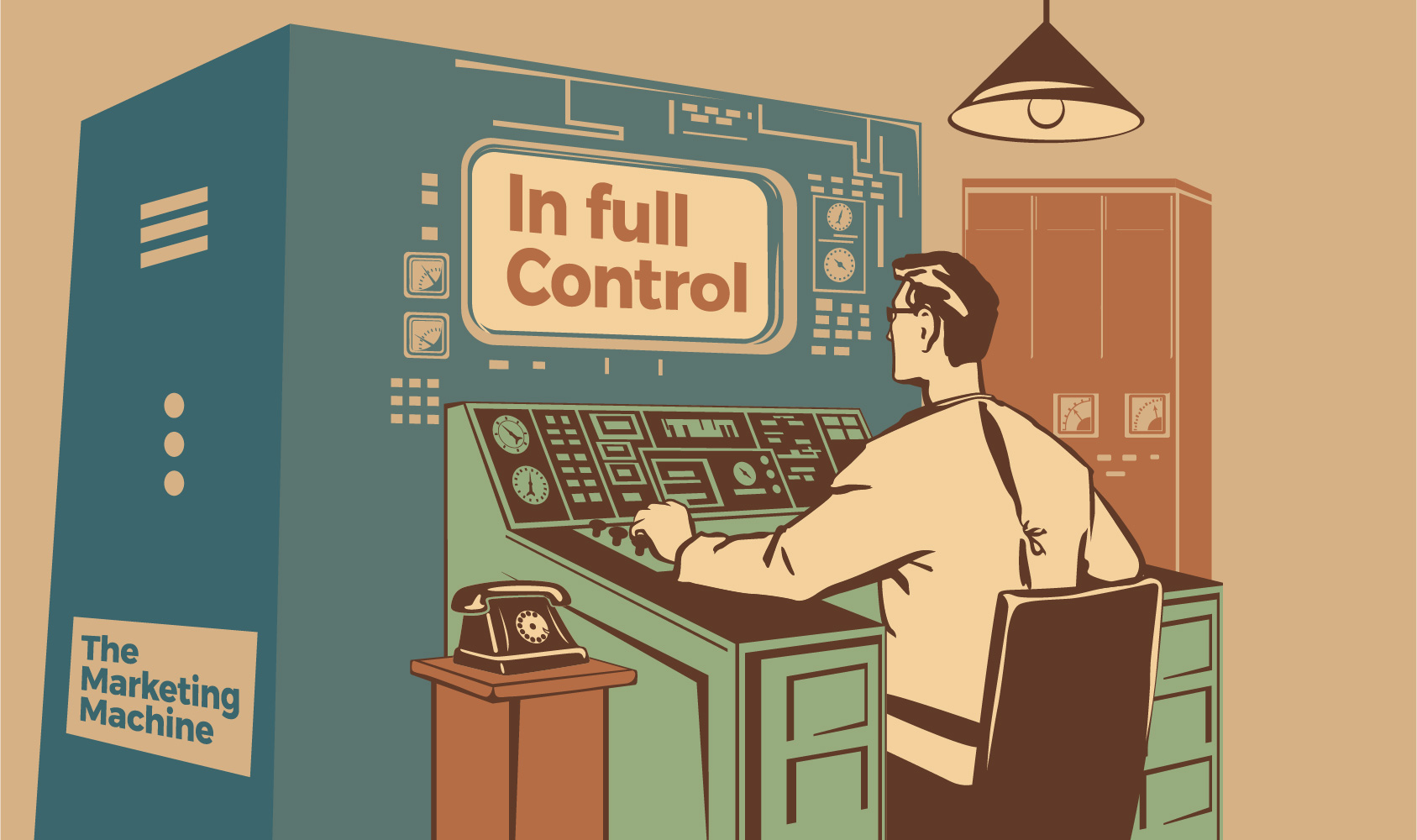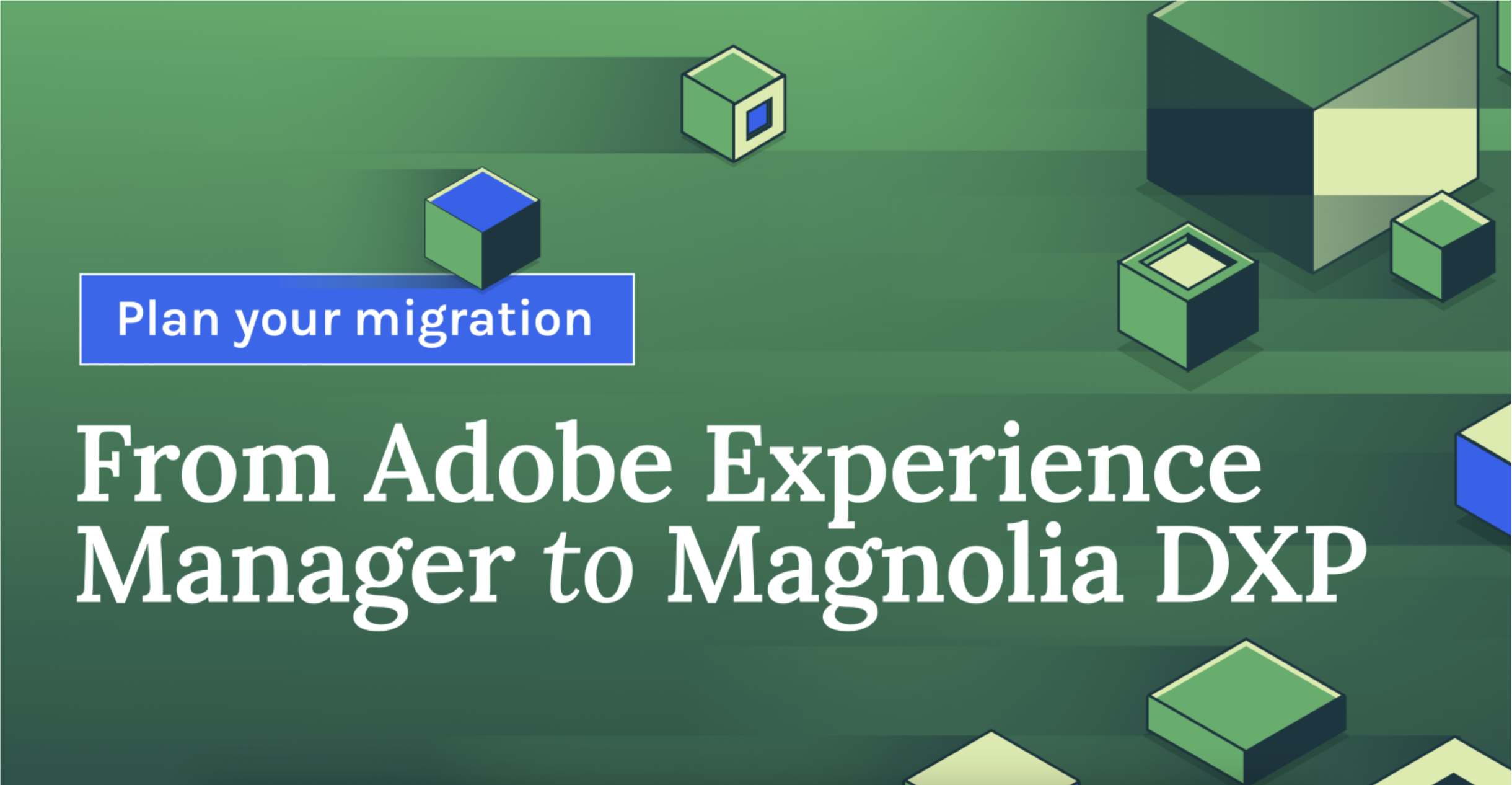DXP as your marketing hub
As a marketeer/marketer at an enterprise-level company, you control multiple owned channels like websites, mobile sites, maybe one or several apps, or even e-commerce, displays, and IoT devices.

Your marketing department might be split up between several teams to provide content to each one of these channels and each using their own tools or methods. Increasing the chance of content aberrations, or even mistakes as the reviewing process will be more complex.
Distributing the content from one platform can be handled by a headless CMS implementation as we saw in a previous blog. But why stop there?
A DXP goes several steps beyond that and becomes your go-to, gathering all marketing-related tools into one platform. Ranging from CRM integrations to Analytics, a customer data platform, marketing automation tools, and more. The DXP becomes a very powerful tool for the marketeer to cross-reference analytics and spot new opportunities or trends.
The composable DXP
The Digital Experience Platform (DXP) is a type of platform that enables businesses to build, manage, and deliver digital experiences across various channels and devices. You have your classic but bulky all-in-one platforms, and then there is the composable DXP.
The idea behind the composable DXP is to provide a modular and flexible architecture that allows organizations to assemble the components they need to meet their specific needs, rather than forcing them to adopt a bulky monolithic solution that may not fit their needs completely.
Imagine a toolbox you can fill with all the equipment you’d like or need to use, but nothing more or redundant.
The typical set of options in a composable DXP consists of tools like a (headless) CMS, a CRM, marketing automation tools, e-commerce, analytics tools, Customer Data Platforms, SEO tools, customer service tools, and more.
The main benefits of using a DXP
- All digital experiences in one platform: A DXP can help organisations deliver a consistent and personalized digital experience across various touchpoints and devices, which can enhance customer engagement and satisfaction.
- Operational efficiency: DXPs can help organisations streamline their content management, marketing, and e-commerce processes, resulting in better operational efficiency and cost savings.
- Better customer insights: DXPs typically includes analytics tools that can provide organisations with valuable insights into customer behavior and preferences, which can be used to improve digital experiences and inform business decisions.
- Flexibility, scalability & future-proof: Composable DXPs are designed to be flexible and scalable, allowing organizations to easily add or remove functionality when either business requirements change or when new technology comes available.
- Faster time-to-market: With pre-built templates, workflows, and integrations, DXPs can help organizations rapidly create and deploy digital experiences, reducing time-to-market for new products and services.
Why choose Magnolia CMS as your Digital experience platform?
Magnolia CMS is a Java-based open-source and headless content management system that emphasizes flexibility and customizability. It is designed to be highly modular, with a wide range of built-in functionality and the ability to easily extend the platform with custom modules.
Magnolia CMS is known for its strong authoring and content management capabilities, as well as its ability to deliver content across multiple channels, including web, mobile, and social media.
If you would like a demonstration of the capabilities of Magnolia as a DXP, do not hesitate to contact us!
Contact us



